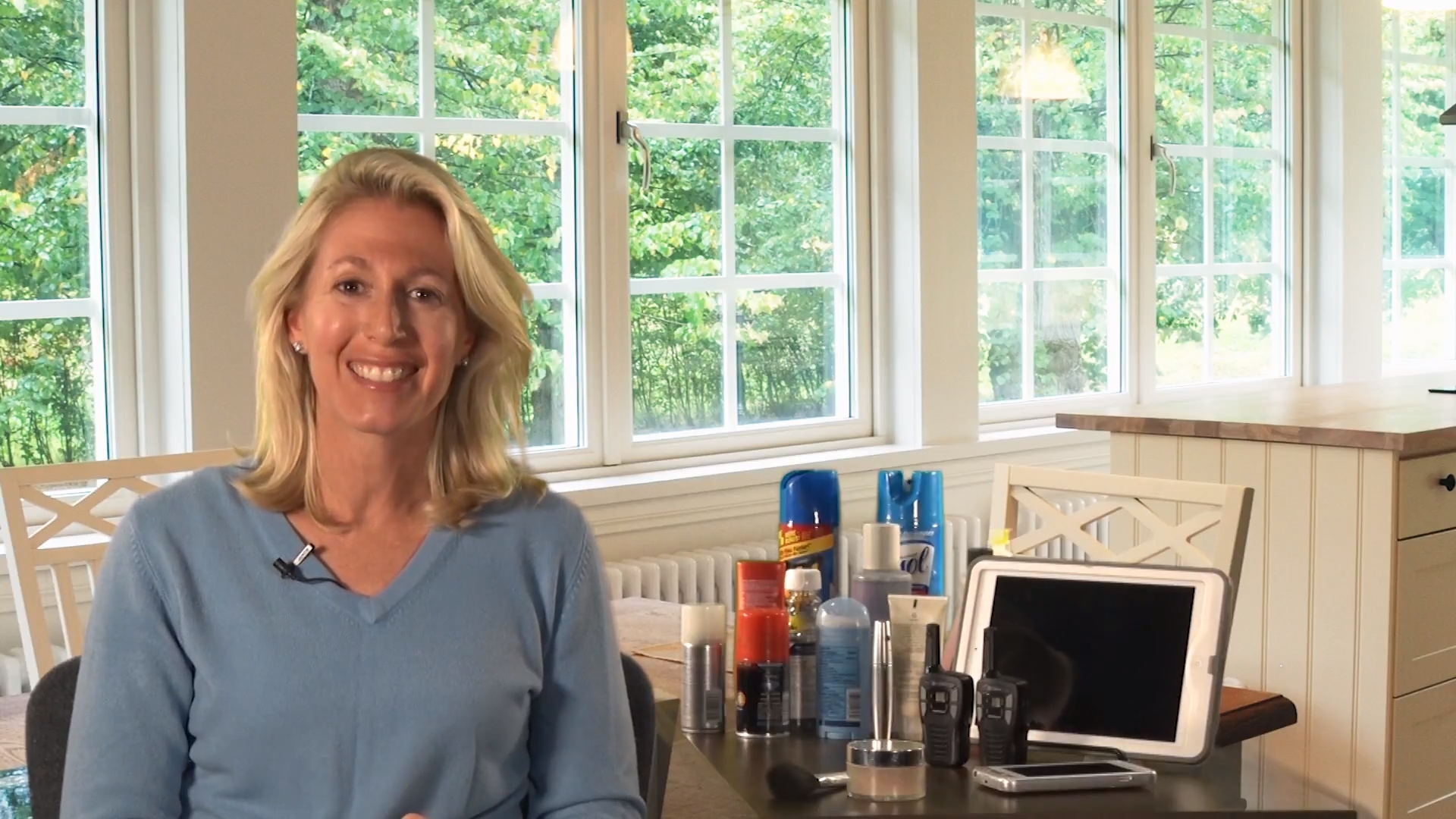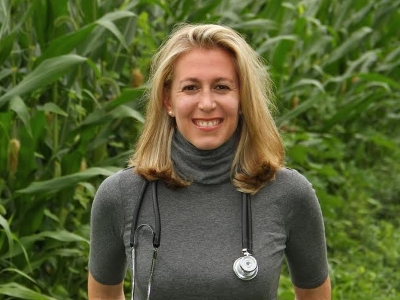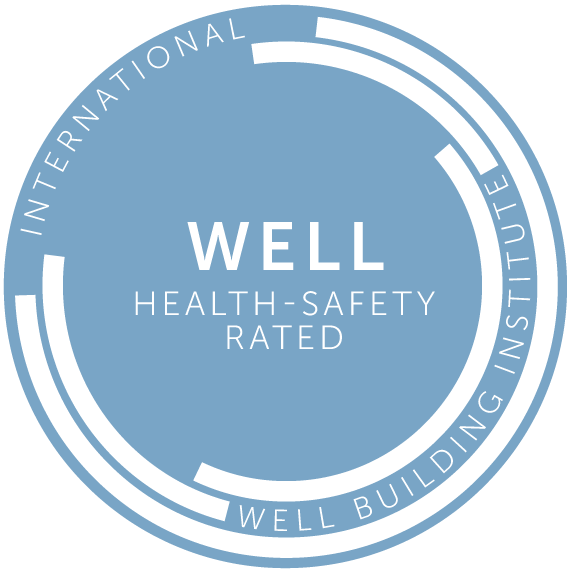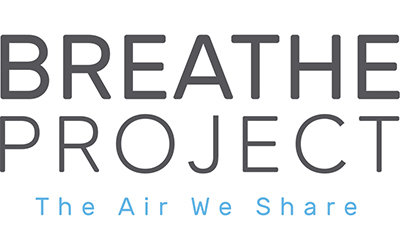Proactive Approaches to Reduce Environmental Exposure: Avoidance, Lifestyle Changes and Practical Resources
Aly Cohen, M.D., F.A.C.R., FABoIM | Founder and Medical Director, Integrative Rheumatology Associates, PC; Founder and Medical Director, The Smart Human LLC; Jones/Lovell Fellow, Arizona Center for Integrative Medicine; Faculty, Academy of Integrative Health and Medicine (AIHM); Co-Editor/Contributor, "Integrative Environmental Medicine", Oxford University Press, 2017

Listen to This Presentation:
Aly Cohen, M.D., F.A.C.R., FABoIM, an integrative medical professional and founder of TheSmartHuman.com, closed the symposium with advice on how to avoid and strengthen our bodies in the face of everyday chemical exposures.
“In terms of the chemical numbers, we have over 90,000 [synthetic] compounds that are commercially available in this country. Just a handful have been tested for reproductive or neurodevelopmental toxicity,” Dr. Cohen said, “and only five chemicals have ever been banned since the passing of the Toxic Substance Control Act, which was in 1976.”
While humans have been around for about 2.5 million years, they have only been exposed to synthetic chemicals for the last 200, Dr. Cohen said, questioning the rapid rise of noncommunicable diseases, including obesity, cancers, neurodevelopmental issues and endocrine-related conditions.
“These epidemiologic changes have occurred at such a rapid rate that they cannot be explained by changes in random genetic mutations alone,” Dr. Cohen said.
Dr. Cohen, who is an autoimmune disease specialist and trained for two years at the Arizona Center for Integrative Medicine, said that while humans can’t always avoid chemical exposure, certain nutrients can help detoxify the body.
Recent studies have shown cruciferous vegetables, including leafy greens, have high levels of vitamins C, K and A as well as phytochemicals, antioxidants, and sulfur-containing compounds that have detoxifying properties, Dr. Cohen said.
“Being nutrient sufficient, it turns out, helps humans to be better equipped to handle the toxin exposures that happen,” she said. “There was a study done to show that green leafy vegetables, which have folate, have been shown to offset the damaging effects, the methylation changes that bisphenol A can affect during pregnancy.”
In addition to using nutrition as a weapon against chemical exposure, Dr. Cohen also discussed avoidance of harmful compounds in plastics and personal care products.
Displaying a slide showing a photo of a Tupperware party, Dr. Cohen urged the audience to avoid heating food in plastic containers and to avoid containers with the #3 plastic resin code on the bottom to avoid phthalate and vinyl contamination. Avoiding older hand-me-down plastic toys and vinyl products are good measures, she said, as well as switching to glass and stainless steel containers.
Furthermore, though the adult woman uses 12 personal care products per day — 17 for teen girls — there are no government regulations on ingredients in these products, Dr. Cohen stressed. She cited a study that detected lead in 75% of tested lipsticks. Phthalates have also been detected in perfumes; the compound is used to hold the scent longer.
Dr. Cohen also discussed using the precautionary principle as an approach to avoid chemical exposure. “We want to think about what we do and the possibility of harm,” she said. “And even if there’s no formal evidence regarding the safety of a chemical or a product, if it seems reasonable, we need to avoid it as a precaution.”
Dr. Aly Cohen shares practical health and prevention tips regularly on Facebook, Twitter, Instagram, and via her newsletter and website at TheSmartHuman.com.
Additional Resources:
- “Chemicals in Personal Care Products” (video)
- “How To Improve Poor Indoor Air Quality” (video)
- “How To Reduce Your Exposure to Harmful Chemicals” (video)
- “How To Safely Use Tech Gadgets” (video)
- “Five Ways to Reduce Your Exposure to Harmful Chemicals” (video)
- “Five More Ways to Reduce Your Exposure to Harmful Chemicals” (video)
- “How To Make Our Drinking Water Safer” (video)

About the Speaker
Dr. Aly Cohen is a rheumatologist, integrative medicine, and environmental health specialist practicing in Princeton, NJ. Dr. Cohen received her undergraduate degree at the University of Pennsylvania. She went on to medical training at Hahnemann University Hospital School of Medicine in Philadelphia, and completed her internship and residency in internal medicine at Beth Israel Medical Center in New York City and rheumatology training at Albert Einstein/Montefiore In the Bronx, NJ. She received a full scholarship to train with Dr. Andrew Weil and colleagues for two years at the famed, Arizona Center for Integrative Medicine. Her medical practice, that she founded in 2011, Integrative Rheumatology Associates P.C., focuses on both traditional western medical management of rheumatologic and other ailments, as well as integrative options for total “wellness”, such as biofeedback, acupuncture, cognitive therapy, diet and exercise counseling, environmental toxin counseling, smoking cessation, stress management and sleep evaluations.
Dr. Cohen is active in educating the next generation, writing curriculum on environmental health topics to be made available by high schools and colleges nationally. Her recent text "Integrative Environmental Medicine" has just been published through Oxford University Press.
Dr. Cohen is a regular health contributor to print, radio, and news broadcasts such as Fox 5 NY and lectures nationally on various health topics including integrative medicine, autoimmune disease/inflammation, health effects of everyday chemicals and cell phone safety. She shares practical vetted health and prevention tips and information regularly on her website, TheSmartHuman.com, and on her Facebook page, Twitter and Instagram.
Watch Dr. Cohen's TEDxCapeMay Talk, "How to Protect Your Kids from Toxic Chemicals" below:




